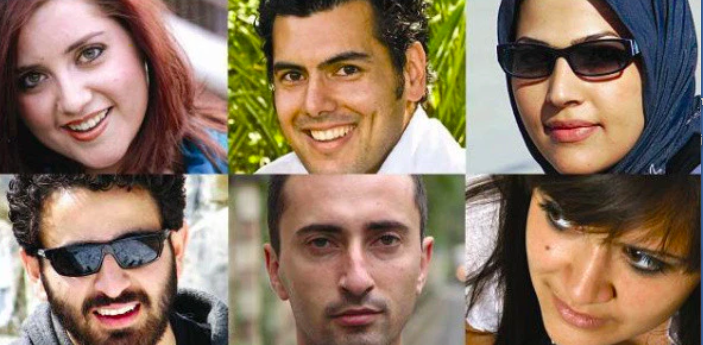Arab Americans: A Diverse Group with a Range of Health Needs and Challenges

By Raed Al-Naser / Arab America Contributing Writer
National Arab American Heritage Month is an opportunity to recognize the contributions of Arab Americans to our society, culture, and history. As we celebrate this month, it is important to take a closer look at the health of Arab Americans. A population whose health needs and risks have been poorly documented.
Representation Matters
Arab Americans are an important and valuable part of the diverse fabric of the United States. Efforts to promote their inclusion and well-being are essential to creating a more equitable and just society. By acknowledging the differences among individuals and groups, we can create a more inclusive environment that promotes equity and fairness. This can increase representation, better decision-making, and improve outcomes for everyone. Prioritizing diversity, equity, and inclusion requires intentional effort and ongoing commitment. The benefits are far-reaching and can positively impact society. Arab American voices are crucial to the conversation. Especially in healthcare settings where cultural and linguistic barriers can often prevent effective communication and care.
Arab American identity has historically been overlooked in conversations about race and ethnicity, including those related to healthcare disparities. Arab Americans are often considered a “white” ethnic group. As a result, their experiences with discrimination, prejudice, and health disparities are not well understood or recognized. In December 2020, the Office of Management and Budget (OMB) announced proposed revisions to the federal standards for race and ethnicity data collection. The proposed addition of a MENA category to federal standards for race and ethnicity data collection is a step toward better understanding and addressing the unique health needs and risks of Arab Americans and other MENA individuals. By collecting more accurate data on this population, healthcare providers and policymakers can better address disparities in health outcomes.
Diverse Needs in Healthcare
Arab Americans face a range of healthcare concerns and disparities that are specific to their community. Some of the key issues include higher rates of morbidities like diabetes, obesity, and cardiovascular disease. As well as high levels of depression, anxiety, and poorer mental health outcomes. Smoking, including hookah smoking, is also a major concern among Arab Americans, as is polysubstance abuse among young men. Women in the Arab American community face their own set of challenges. These include intimate partner violence and lower rates of access to breast cancer screening. Arab Americans also experience significant socioeconomic disparities, with higher levels of poverty, lower rates of health insurance, and lower rates of home ownership than non-Hispanic Whites, despite high levels of education and lower unemployment. Refugees and displaced immigrants are particularly vulnerable to these disparities. As they often face language barriers, financial hardship, food insecurity, and limited access to healthcare.
Improving healthcare access and outcomes for Arab Americans requires a comprehensive approach. It must address the cultural and linguistic barriers that can prevent this community from accessing care. It is important for healthcare providers to work towards being culturally sensitive to the unique needs of Arab American patients. This may include providing language interpretation services and addressing barriers to transportation and housing. While also, collaborating with community organizations to provide support and resources to this population.
Inclusivity is Key
To create an inclusive environment for Arab Americans, healthcare organizations need to prioritize diversity and inclusion at all levels of leadership and throughout all departments. This includes actively seeking out diverse perspectives and experiences, including those of healthcare professionals from Arab American communities.
In addition to promoting diversity among healthcare professionals, organizations can also work to create a culturally competent environment for Arab American patients. This may involve providing language and interpretation services, as well as cultural sensitivity training for all staff members. Healthcare providers need to be educated on the specific health needs and risks of Arab Americans. As well as the impact of cultural and linguistic barriers on communication and care.
Awareness and Sensitivity
By creating a welcoming and inclusive environment, healthcare organizations can help to build trust with Arab American patients and improve health outcomes. It is also important to remember that creating an inclusive environment is an ongoing process that requires ongoing effort and attention.
Clinicians can also educate themselves on the cultural beliefs, values, and practices of Arab Americans to better understand their patients and provide culturally sensitive care. This includes understanding the impact of religion, family dynamics, and gender roles on healthcare decisions and practices. Clinicians should also be aware of potential language barriers and work to overcome them. A means of doing this can include offering interpretation services and providing translated materials. Finally, clinicians can advocate for policies and programs that address the social determinants of health that disproportionately affect Arab Americans. This includes poverty, discrimination, and lack of access to healthcare.
Collaboration with community organizations, such as the National Arab American Medical Association (NAAMA), can be a valuable resource for healthcare providers seeking to improve their understanding of Arab American health needs and how to provide culturally responsive care. These organizations can also serve as advocates for the Arab American community in advocating for policies that address health disparities and promote health equity. Working together with community organizations can lead to better health outcomes and a stronger sense of community.
National Arab American Heritage Month is a time to celebrate the rich and diverse cultural heritage of Arab Americans. It also recognizes their important contributions to American society. All while highlighting the importance of promoting diversity, equity, and inclusion in all aspects of society, including healthcare. By working towards a more inclusive and equitable society, we can create a better future for all.
Raed Al-Naser, MD is the Executive Secretary of the National Arab American Medical Association (NAAMA).
Check out the Arab America Blog here!








